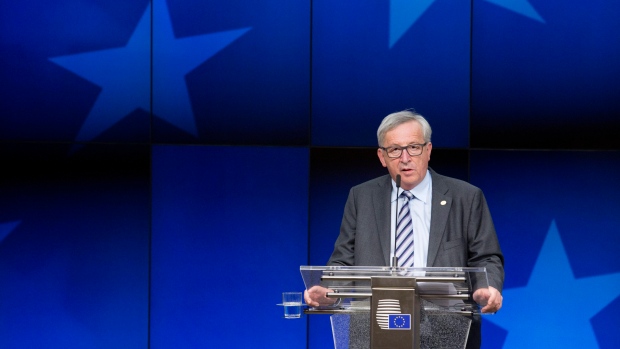Jul 5, 2016
EU balks at fast-tracking trade deal with Canada amid Brexit aftermath
, Reuters

BRUSSELS – Canada’s free-trade deal with the European Union has suffered a setback, after the European Commission bowed to pressure to give Europe's parliaments the right to ratify the landmark agreement.
The decision is meant to address public concerns, but could create more friction for the EU in the Brexit vote’s aftermath.
In the face of popular suspicion about secretive trade deals benefiting big companies, Commission President Jean-Claude Juncker retreated from his position that the multi-billion-euro pact would only need support from European Union governments and the European Parliament to go ahead.
"I have looked at the legal arguments and I have listened to heads of state or government and to national parliaments," Juncker said in a statement on Tuesday. "The credibility of Europe's trade policy is at stake."
The 1,600-page text, which goes beyond tariffs to reduce transatlantic barriers to business, will now be sent to each of the EU's 28 national parliaments, and in some cases, such as Belgium, to regional parliaments as well.
Requiring national parliamentary approval for the agreement, first envisaged in 2009, raises the risk it will never be implemented.
Prime Minister Justin Trudeau said he remained “optimistic” about the ratification of the Comprehensive Economic and Trade Agreement, known as CETA.
“With the situations going on right now and the perceptions around the EU, it’s going to be very important for [the European Commission] to demonstrate an ability to move forward on deals that are going to be good for their citizens, good for businesses and good for international trade in general,” Trudeau said in Montreal on Tuesday.
Canada’s Minister of International Trade, Chrystia Freeland, said in a statement that European Commission’s decision was anticipated and “will keep CETA on track.”
“I am very pleased that the EU Commission is today presenting CETA to the European Union's member states,” said in the statement. “It is going forward as a mixed agreement – meaning Europeans at the national level will have a democratic say on this agreement, just as CETA will be debated in our own parliament.”Freeland
Proponents say it could increase bilateral trade by a fifth to 26 billion euros (US$29 billion). But many EU voters have turned against free trade since the global financial crisis, fearing that giving multinationals unfettered access to European markets will destroy jobs.
Italy's industry minister, Carlo Calenda, warned the agreement was in danger and predicted a far bigger trade deal with the United States would collapse, too.
"I think (the U.S. deal) will fall through, and the agreement with Canada is at risk of doing the same. We have been negotiating it for too long," Calenda said in Rome.
The Commission, the EU's executive, said it still hoped the deal with Canada could be signed at an EU-Canada leaders' summit in October, allowing it to come into effect.
As the most ambitious trade agreement the EU has negotiated so far, the accord encompasses financial services, shipping, sustainable development and access to government tenders, as well as food and industrial goods.
But EU Trade Commissioner Cecilia Malmstrom conceded the deal had fallen victim to wider concerns about the impact of globalisation and whether foreign companies were too powerful.
She blamed EU governments for failing to stand up for the trade deals they had agreed the European Commission should negotiate.
"The risk to EU trade policy is that member states infect this debate by confusing the content of the agreement with the general malaise and anti-globalisation feelings," Malmstrom told a news conference. "Instead of addressing this, the questions and concerns of the citizens are used to boost these feelings."
With files from BNN

